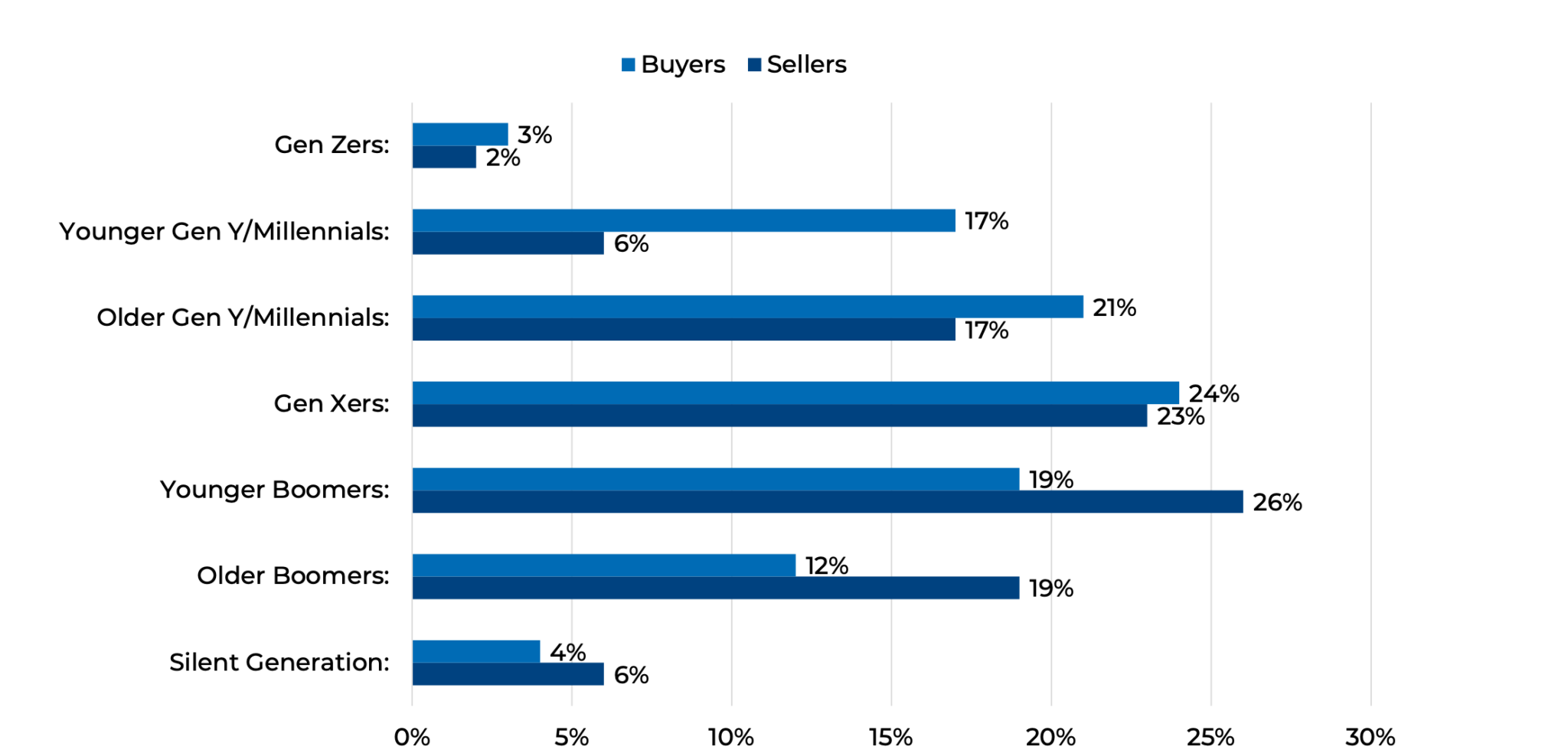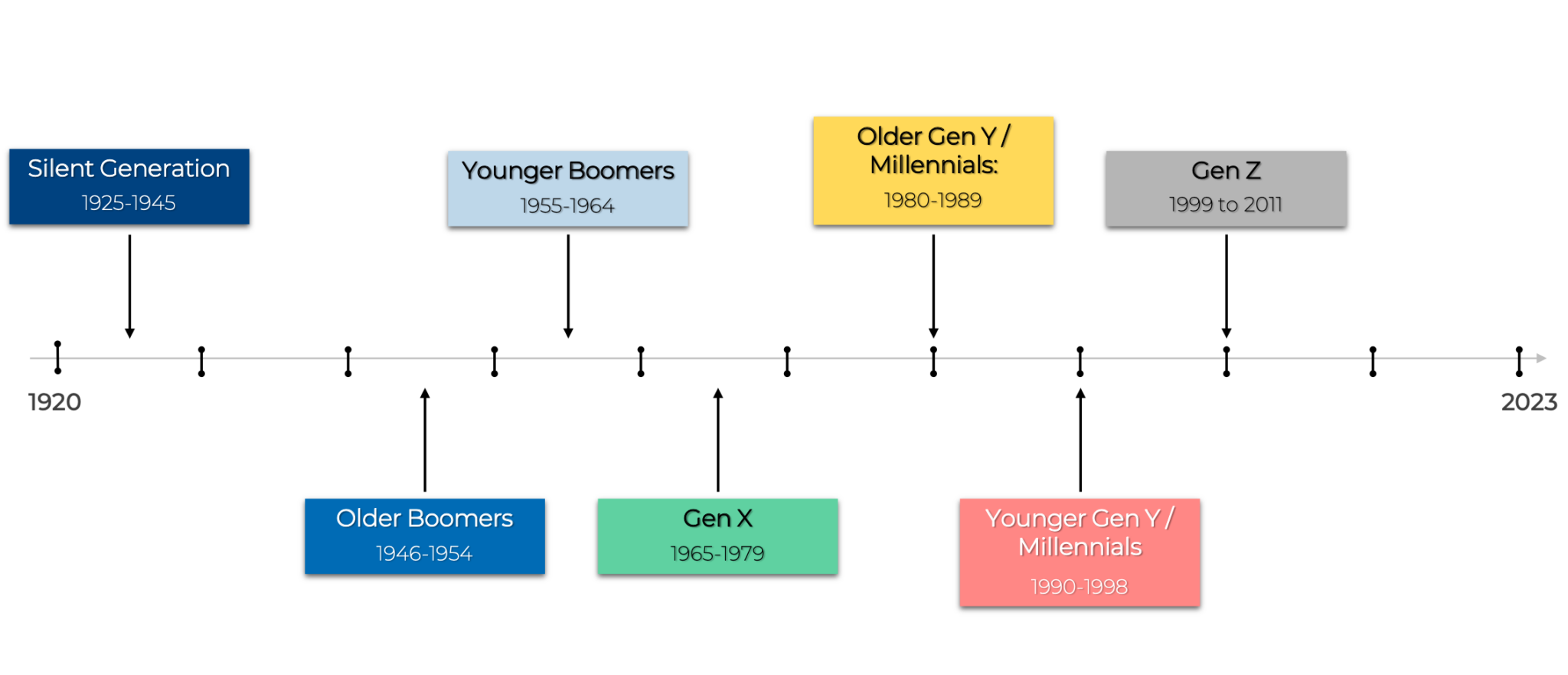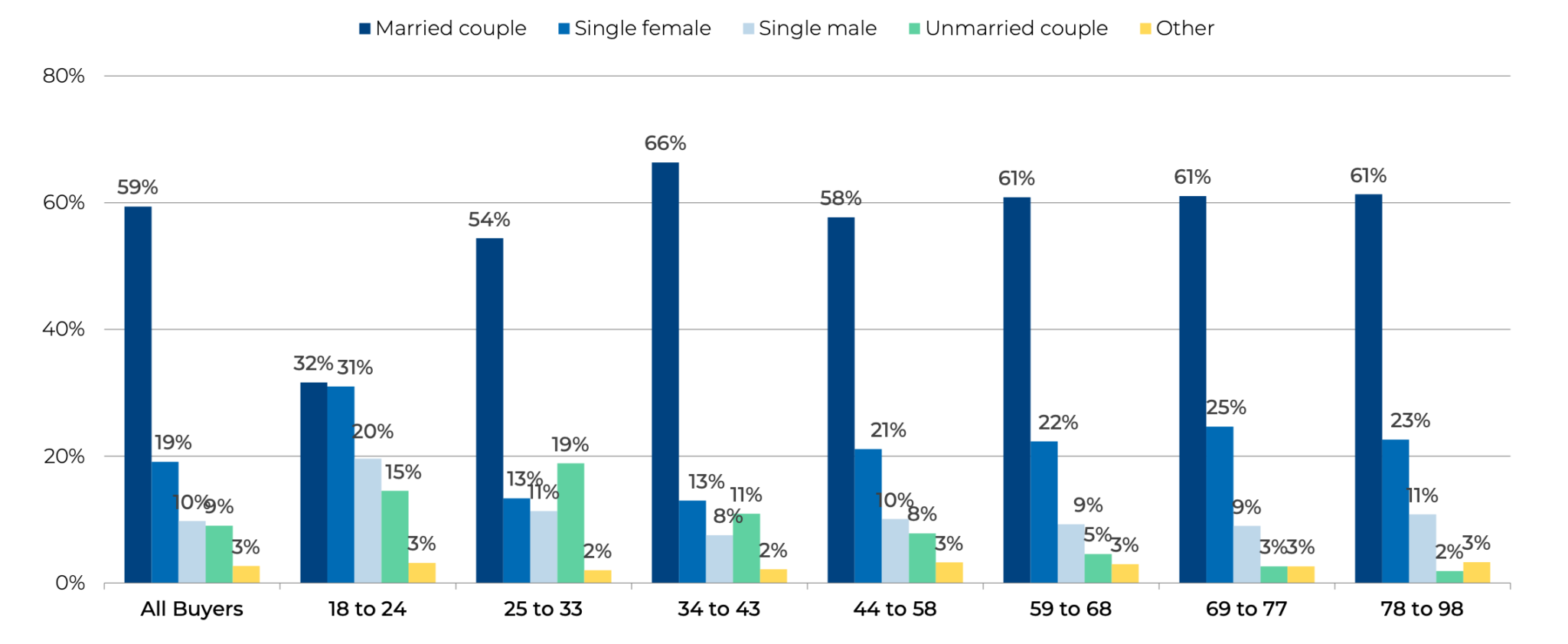The millennials are bouncing back. The group surpassed baby boomers to make up the largest share of homebuyers between June 2022 and 2023. The National Association of REALTORS® (NAR) revealed this notable shift in its latest Home Buyers and Sellers Generational Trends report.
Share of homebuyers and homesellers by generation
Based on surveys with thousands of representative homebuyers from that period, the report provides a detailed picture of the most recent purchasing class. In last year’s version, baby boomers out-bought millennials for the first time in eight years. Now, however, millennials have reclaimed their No. 1 spot, accounting for 38% of the 4.7 million home sales across the U.S., while baby boomers accounted for 31%. Boomers were followed by Gen X (24%), the Silent Generation (4%) and Gen Z (3%).
For the terms of this study, millennials included everyone aged 25 to 43, although the large group was also considered as two sub-groups, younger millennials (aged 25 to 33) and older millennials (aged 34 to 43). Younger millennials accounted for 17% of sales while older millennials accounted for 21%.
Age group breakdown
The millennial bump coincided with an overall rise in first-time buyers across generations, with 32% of recent buyers purchasing for the first time. That’s an increase of 6% year over year, and younger millennials led the surge. Seventy-five percent of younger millennial homebuyers purchased for the first time during the period of study, followed by 44% of older millennial homebuyers and 24% of Gen X homebuyers.
“Younger millennials [are] stepping into homeownership for the first time, and older millennials [are] transitioning to larger homes that suit their evolving needs,” NAR Deputy Chief Economist and Vice President of Research Jessica Lautz said in a press release.
Older millennials had the highest income levels reported, with a median household income of $127,700 (followed closely by Gen X with $126,900). In turn, they also had the highest share of married couples purchasing, at 66%.
Meanwhile, younger millennials had the highest share of unmarried couples purchasing, at 19%. They were the most educated group, with 80% holding a bachelor’s degree or higher.
Single buyers were also common among Gen Z, the still-emerging demographic. NAR considered all buyers aged 18 to 24 as Gen Z and though they accounted for just 3% of all buyers, 31% of those purchasers were single females. That proportion is significantly higher than any other generation’s.
“Gen Z buyers are entering the housing market, and their demographics are emerging distinctly from other age groups,” Lautz said. “More than half are single buyers, outpacing all age groups of single men and single women.” She also pointed out that they are also most likely to identify as LGBTQ+.
The adult composition of homebuyer households
However, when it comes to selling homes, baby boomers remain in the lead. Boomers made up 45% of total sellers; younger boomers (aged 59 to 68) made up 26% while older boomers (aged 69 to 77) made up 12%. Both millennials and Gen X accounted for 23%, trailed by the Silent Generation, at 6%, and Gen Z, at 2%.
“Baby boomers continue to dominate the home-selling market as they make pivotal decisions regarding their retirement living situations, whether it’s right-sizing or moving closer to loved ones,” Lautz said.
Younger baby boomers were also the most likely to reside in their home for more than 16 years before moving. Their median tenure was 20 years. “Benefiting from longer periods of homeownership compared to other generations, boomers approach these transactions with substantial equity, enabling strategic housing trades,” Lautz concluded.
In all, 82% of total buyers across generations felt their home purchase was a good financial investment, with younger millennials feeling most strongly, at 86%. The desire to simply own a home was their most common reason for buying, as opposed to boomers and the Silent Generation, who reported moving to be closer to family and friends at higher rates.
Additionally, the majority of homebuyers, 89%, worked with a real estate agent, although the internet was the most common way that shoppers found their eventual home. All age groups but the Silent Generation reported using the internet, rather than an agent, to make that discovery although millennials used the internet at higher rates.
Still, across all generations, buyers were generally satisfied with their agent’s work. Seventy-five percent of buyers said they would definitely use their agent again or recommend them to others. Similarly, 73% of sellers were likely to reuse or refer their agent.



